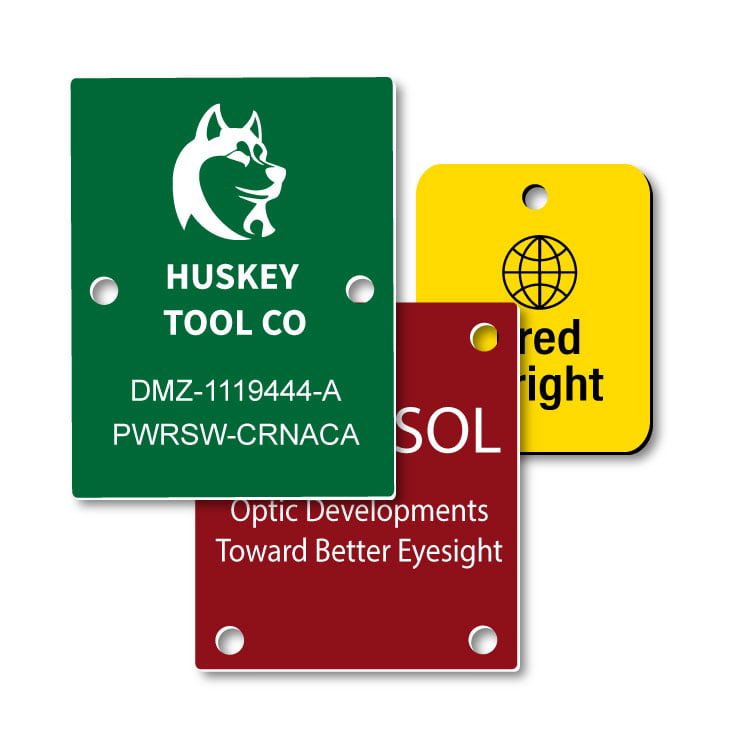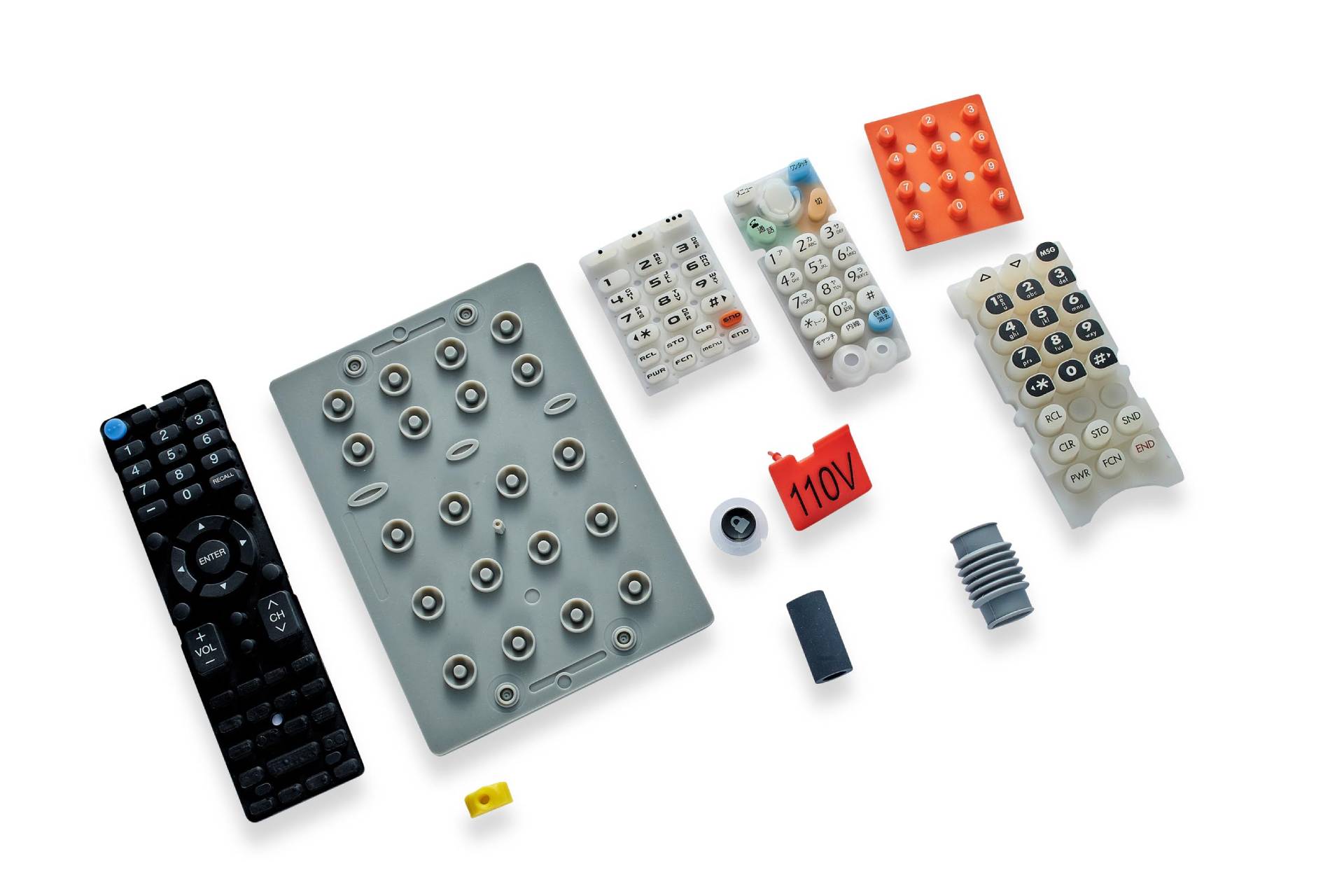Exactly How Plastic Nameplates Are Manufactured: A Comprehensive Guide to Their Manufacturing Refine
The manufacturing of plastic nameplates involves numerous specific actions, starting from the option of ideal products to the final complements. Each phase is essential, ensuring the product fulfills specific demands for sturdiness and aesthetic appeals. Different manufacturing strategies play a significant role in crafting these nameplates. Comprehending these procedures can drop light on the complexities behind what could feel like an easy product. What variables add to the top quality and customization of these nameplates?
Comprehending Plastic Products Used for Nameplates

The Layout Refine: From Principle to Model
The style procedure for plastic nameplates starts with a clear concept that guides the total development. Designers work together with customers to specify the function, style, and certain requirements of the nameplate. This initial stage consists of brainstorming sessions, mapping out concepts, and picking colors and fonts that straighten with branding goals.Once the idea is established, developers use computer-aided layout (CAD) software application to produce in-depth electronic depictions. These models allow for visualization and adjustments prior to progressing. Feedback from stakeholders is important throughout this phase, as it assists refine the layout to meet expectations.After settling the electronic prototype, a physical design might be generated, typically through methods like 3D printing. This concrete depiction enables further examination of aesthetic appeals and capability. On the whole, the layout process is an essential action that lays the foundation for the effective production of top notch plastic nameplates.
Reducing and Forming the Plastic
In the cutting and shaping stage of plastic nameplate manufacturing, the option of products plays a necessary role in identifying the final item's top quality and longevity (Plastic Nameplates). Various precision reducing methods, such as laser cutting and CNC machining, guarantee that the plastic is shaped with precision and uniformity. This combination of careful product option and advanced reducing approaches is essential for creating premium nameplates

Product Selection Refine
Picking the appropriate material is important for generating top notch plastic nameplates. Numerous kinds of plastics are readily available, each offering unique advantages and features. Typical options consist of acrylic, polycarbonate, and PVC. Acrylic is preferred for its clarity and UV resistance, making it optimal for outdoor applications. Polycarbonate, understood for its durability and influence resistance, appropriates for settings that need enhanced defense. PVC is commonly selected for its cost-effectiveness and adaptability in layout. The choice procedure also considers elements such as thickness, color, and surface finish, which can significantly affect the last look and performance of the nameplate. Eventually, the selected material has to straighten with the planned usage and visual goals of the plastic nameplate.
Accuracy Trimming Strategies
While picking the suitable product prepares, precision cutting techniques play a crucial function fit the plastic nameplates into their last kinds. Different approaches, including laser cutting, CNC milling, and die cutting, are employed to attain accuracy and uniformity. Laser cutting uses focused light to produce clean edges and detailed designs, suitable for intricate patterns. CNC milling uses versatility by removing excess product with accuracy, accommodating numerous thicknesses and shapes. Pass away cutting, on the other hand, enables mass production of uniform pieces, boosting performance. Each technique is picked based upon the design specs and the preferred finish, guaranteeing that the end product satisfies quality standards and customer assumptions while maintaining longevity and visual charm.
Printing Techniques for Personalization
Just how can suppliers attain accurate and lively layouts on plastic nameplates? The answer hinges on various printing methods tailored for personalization. Digital printing has actually acquired appeal due to its capacity to create complex designs and high-resolution pictures directly onto plastic surfaces. This technique permits quick turn-around times and minimal configuration costs, making it optimal for short runs and customized orders.Screen printing stays another commonly made use of technique, especially for larger amounts. It involves producing a pattern and using layers of ink, leading to rich colors and durability. UV printing, which utilizes ultraviolet light to treat the ink, is additionally effective, providing exceptional bond and resistance to fading.Additionally, pad printing supplies adaptability for irregularly designed nameplates, permitting detailed designs on tough surfaces. These printing techniques make it possible for producers to fulfill varied customer requires while making certain high quality and long life in their plastic nameplate items.
Surface Area Therapies and Finishing Options

High Quality Control Procedures in Production
Assuring the highest possible criteria of top quality control throughout the production of plastic nameplates is vital for keeping product integrity and consumer complete satisfaction. Makers apply rigorous inspection protocols at various phases of the manufacturing process. Raw products undertake comprehensive screening to validate they meet specs for resilience and shade uniformity. Throughout the molding phase, automated systems monitor criteria such as temperature level and stress to avoid defects.In addition, aesthetic evaluations are carried out to recognize any surface blemishes or misalignments. As soon as the nameplates are generated, they go through practical examinations, consisting of bond tests for printed components and tension tests for toughness. Quality assurance teams typically use statistical tasting methods to examine batches, seeing to it that any discrepancies from criteria are without delay addressed. This thorough strategy not only boosts item quality but additionally promotes count on with clients, attesting the maker's commitment to quality in every nameplate created.
Packaging and Distribution of Finished Nameplates
The product packaging and distribution of completed plastic nameplates are crucial action in ensuring they get to customers in excellent condition. Various packaging products are chosen to shield the nameplates during transit, while shipping methods are carefully chosen based upon performance and cost-effectiveness. Furthermore, efficient storage space solutions are executed to preserve quality up until the nameplates are delivered.
Packaging Materials Used
Picking ideal product packaging products is essential to ensure their defense during transportation when distributing completed plastic nameplates. Frequently used materials consist of bubble cover, foam extra padding, and cardboard boxes, all created to support the nameplates against shocks and effects. Bubble cover gives a flexible obstacle, while foam extra padding guarantees that nameplates continue to be firmly in position, lessening the threat of scrapes or breakage. Furthermore, sturdy cardboard boxes are utilized to consist of the nameplates, supplying architectural support and security from exterior elements. Tags might be put on indicate dealing with guidelines or vulnerable materials, further boosting security during transport. On the whole, utilizing premium packaging products considerably adds to the stability and presentation of the finished plastic nameplates upon arrival at their location.
Delivering Techniques Used
Reliable circulation of finished plastic nameplates relies on different shipping methods that ensure secure and prompt shipment. Business typically use messenger services, freight delivery, and postal services, depending upon the dimension, weight, and destination of the bundles. For neighborhood distributions, copyright solutions offer rapid transportation, ensuring nameplates get to consumers promptly. For bigger orders, products shipping is chosen, making use of trucks or delivery containers to deliver bulk amounts successfully. Post offices work as an economical choice for her comment is here smaller sized deliveries, especially for residential deliveries. All shipping approaches prioritize safety product packaging to avoid damages throughout transportation. Tracking systems are likewise used to check shipments, giving clients with dig this real-time updates and confidence pertaining to the condition of their orders.
Storage Solutions Implemented

Frequently Asked Questions
What Sorts Of Businesses Commonly Use Plastic Nameplates?
Plastic nameplates are frequently utilized by different organizations, including workplaces, manufacturing facilities, institutions, and hospitals. These nameplates offer crucial features such as recognition, info display, and branding, adding to business performance and professional look throughout diverse atmospheres.
The length of time Does the Entire Production Process Take?
The production procedure period varies based on intricacy and quantity, normally varying from a few days to numerous weeks. Aspects affecting this timeline consist of design approval, material availability, and production strategies employed by the business.
Can Plastic Nameplates Be Recycled After Use?
Plastic nameplates can be reused, offered they are made from recyclable products. The schedule of recycling programs and local guidelines might affect their recyclability. Appropriate disposal practices are vital to assure reliable recycling.
What Are the Ecological Impacts of Plastic Nameplate Manufacturing?
The ecological effects of plastic nameplate production include carbon emissions, resource deficiency, and air pollution from manufacturing processes. Plastic Nameplates. Additionally, incorrect disposal contributes to plastic waste, detrimentally affecting environments and wildlife, highlighting the need for sustainable techniques
Exist Any Safety And Security Interest In Plastic Nameplates?
Security concerns concerning plastic nameplates mostly entail potential chemical exposure during manufacturing and the threat of products weakening with time, which might cause hazardous substances being released, impacting both human health and wellness and the environment. While different products can be used for nameplates, plastic continues to be a prominent selection due to its adaptability and resilience. In the cutting and shaping stage of plastic nameplate production, the choice of materials plays an important function in figuring out the final product's high quality and longevity. Selecting the appropriate material is crucial for generating top notch plastic nameplates. While selecting the ideal product lays the foundation, precision cutting strategies play an important role in shaping the plastic nameplates into their last types. When distributing finished plastic nameplates, selecting appropriate product packaging products is essential to assure their defense throughout transit.